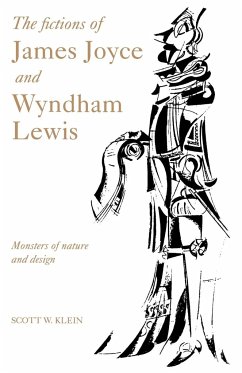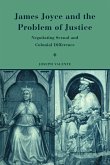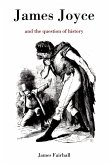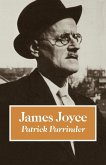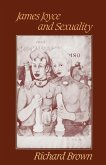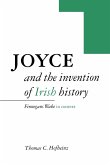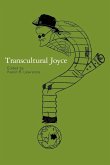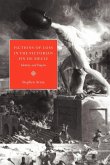Relationship between the work of Joyce and Lewis, expressed through similar themes and structures.
The literary relationship of James Joyce and Wyndham Lewis has previously been described in merely biographical terms. In The Fictions of James Joyce and Wyndham Lewis Scott W. Klein takes Wyndham Lewis's criticism of Ulysses in Times and Western Man and Joyce's implicit response to Lewis in Finnegans Wake as an emblematic opposition signalling significant textual relations within and between the fictions of the two authors. The seeing eye and the world, the creating mind and fiction, language and its aesthetic and political object, and the processes of history: all appear in the work of both Joyce and Lewis, as related thematic structures that raise questions about binarism, dialectic, and the reconciliation of opposites. Detailed examination of key texts by Joyce and Lewis reveals affiliations between the two writers, and offers insight into the politics and aesthetics of modernism.
Review quote:
"...a well-balanced reading of both authors....the most thorough reading of the Joyce-Lewis intertext to date....His command of the major texts of both Joyce and Lewis is impressive and leads to the discovery of a number of heretofore unremarked parallels....After reading Klein, one begins to perceive the profound affinities between these two writers. One begins to understand just how crucial Lewis was to Joyce in the office of "anti-collaborator"--and Joyce to Lewis. They must be read together."
Clio
"Breaking ground in the study of oppositional literary identity, Klein's reading of the relationship between Joyce and Lewis ought to influence further studies to make local reading of diverse modes the basis for a unified and inclusive interpretation of modernism."
Jesse Matz, Modernism/Modernity
"[Klein's] arrival on the scene is good news for the future of the Joyce industry. He is sharp and energetic and engagingly enthusiastic. He has read everything. He is full of arresting insights."
John Gordon, English Language in Transition 1880-1920
Table of contents:
Acknowledgements; List of abbreviations; Introduction: opposition and representation; 1. The tell-tale Eye; 2. The mirror and the razor; 3. The cracked looking-glass of the master; 4. Minds of the anti-collaborators; Conclusion; Notes; Bibliography; Index.
Hinweis: Dieser Artikel kann nur an eine deutsche Lieferadresse ausgeliefert werden.
The literary relationship of James Joyce and Wyndham Lewis has previously been described in merely biographical terms. In The Fictions of James Joyce and Wyndham Lewis Scott W. Klein takes Wyndham Lewis's criticism of Ulysses in Times and Western Man and Joyce's implicit response to Lewis in Finnegans Wake as an emblematic opposition signalling significant textual relations within and between the fictions of the two authors. The seeing eye and the world, the creating mind and fiction, language and its aesthetic and political object, and the processes of history: all appear in the work of both Joyce and Lewis, as related thematic structures that raise questions about binarism, dialectic, and the reconciliation of opposites. Detailed examination of key texts by Joyce and Lewis reveals affiliations between the two writers, and offers insight into the politics and aesthetics of modernism.
Review quote:
"...a well-balanced reading of both authors....the most thorough reading of the Joyce-Lewis intertext to date....His command of the major texts of both Joyce and Lewis is impressive and leads to the discovery of a number of heretofore unremarked parallels....After reading Klein, one begins to perceive the profound affinities between these two writers. One begins to understand just how crucial Lewis was to Joyce in the office of "anti-collaborator"--and Joyce to Lewis. They must be read together."
Clio
"Breaking ground in the study of oppositional literary identity, Klein's reading of the relationship between Joyce and Lewis ought to influence further studies to make local reading of diverse modes the basis for a unified and inclusive interpretation of modernism."
Jesse Matz, Modernism/Modernity
"[Klein's] arrival on the scene is good news for the future of the Joyce industry. He is sharp and energetic and engagingly enthusiastic. He has read everything. He is full of arresting insights."
John Gordon, English Language in Transition 1880-1920
Table of contents:
Acknowledgements; List of abbreviations; Introduction: opposition and representation; 1. The tell-tale Eye; 2. The mirror and the razor; 3. The cracked looking-glass of the master; 4. Minds of the anti-collaborators; Conclusion; Notes; Bibliography; Index.
Hinweis: Dieser Artikel kann nur an eine deutsche Lieferadresse ausgeliefert werden.

